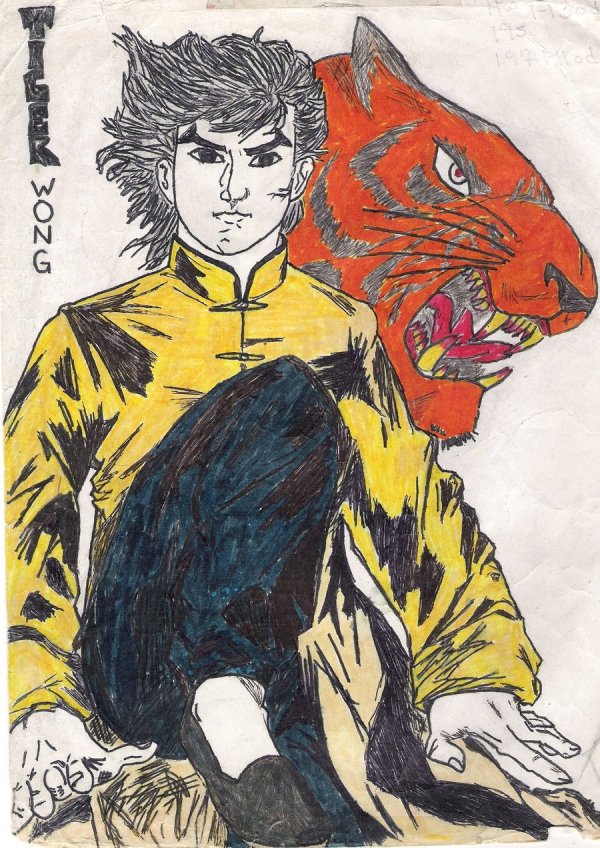

The drawing style began to use a style described by Tim Pilcher and Brad Brooks in their 2005 book The Essential Guide to World Comics as "more realistic," and the stories became more serious and less comical. Responding to the success of writer Ma Wing Shing's manhua, Chinese Hero, Wong Yuk-long modified Oriental Heroes again in the mid-1980s. He also explored less graphic means of depicting violence and altered his drawing technique. Wong Yuk-long changed the name of the book to its current name of Lùhng Fú Mùhn, with the English name of Oriental Heroes. Oriental Heroes was published daily in the newspaper, and a full week's stories were collected and published in book form every week. After a month, Sàng Bou switched to a manhua-only daily newspaper.

In the first month of Sàng Bou's run, the newspaper published actual news together with various manhua titles, including Oriental Heroes on the back cover. Īs the Indecent Publication Law only applied to manhua, Wong Yuk-long established a daily newspaper, called Sàng Bou ( simplified Chinese: 生报 traditional Chinese: 生報 pinyin: Shēng Bào), with which to publish Oriental Heroes. People criticised the graphic violence depicted in Oriental Heroes and other similar action genre manhua, eventually leading to the enactment of the Indecent Publication Law in 1975, banning explicit violence in manhua. Various weapons were used, where spilled blood, internal organs, guts, and bones were shown in the injuries that the characters sustained. In the early years of the book's run, the fighting was very graphically illustrated. The heroes of the stories exhibited antisocial behaviours, but routinely fought for justice. It featured stories about young people living in public housing estates in Hong Kong fighting gangsters and criminals. Oriental Heroes was first published in 1970 under the title Little Rascals ( Chinese: 小流氓 Cantonese Yale: Síu Làuh Màhn). This name translates as "Dragon Tiger Gate" in English, and is in reference to the name of the fictional kungfu school and organization that is a major subject matter in the book. Its Chinese name is pronounced in Cantonese, Lùhng Fú Mùhn ( simplified Chinese: 龙虎门 traditional Chinese: 龍虎門 pinyin: Lóng Hǔ Mén). Oriental Heroes is the book's official English name. The 2006 movie Dragon Tiger Gate was based on this manhua. The theme of its stories often revolve around brotherhood and the fight for justice.

It established a new action genre of Hong Kong manhua and spawned many imitators.

The book was the first Hong Kong manhua title based on action and fighting, often borrowing from the wuxia literary world. It was created in 1970, and it continues to be published today. Oriental Heroes is a popular Hong Kong-based manhua created by Wong Yuk-long, a writer/artist responsible for also creating a number of other popular manhua titles.


 0 kommentar(er)
0 kommentar(er)
